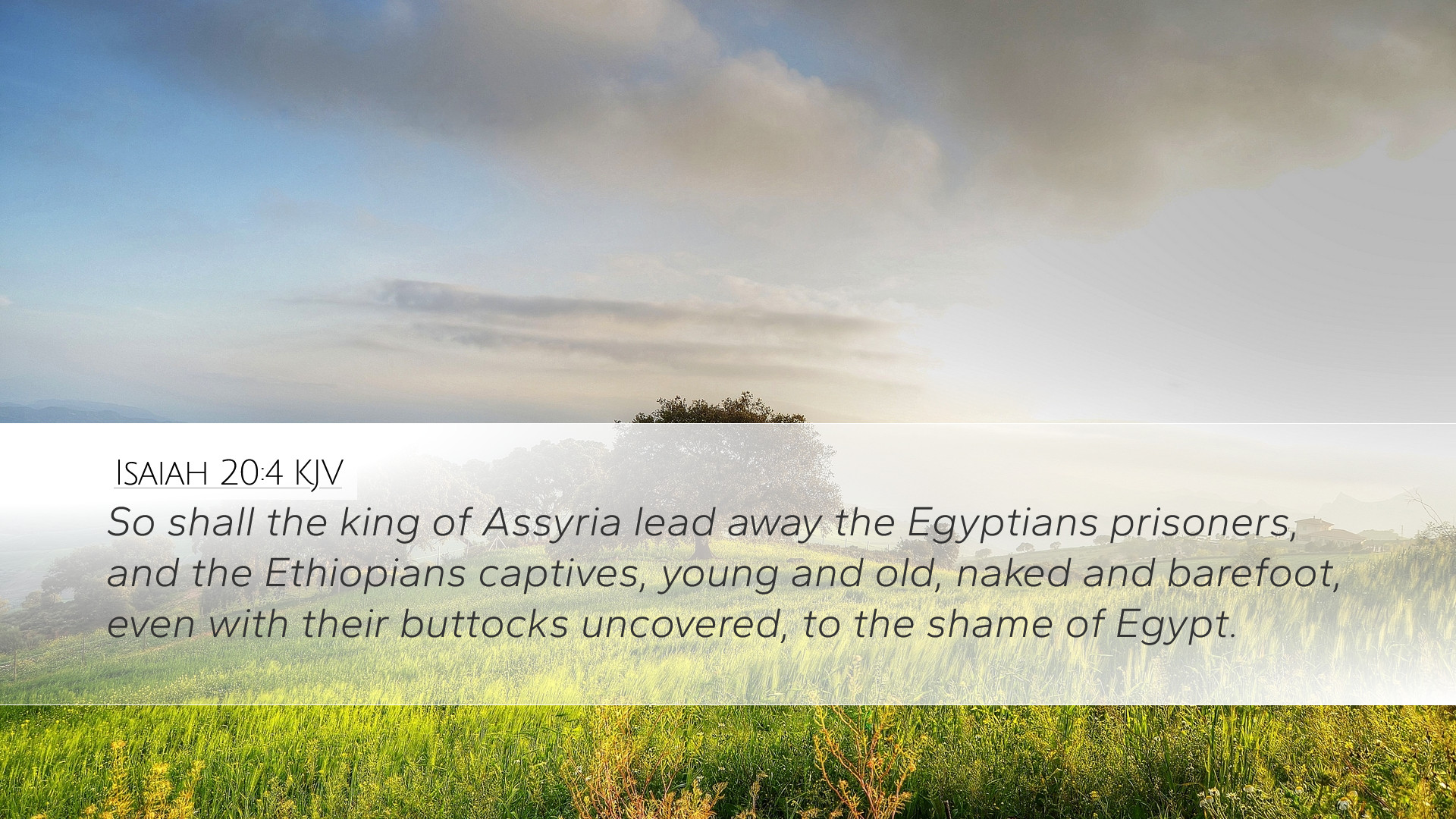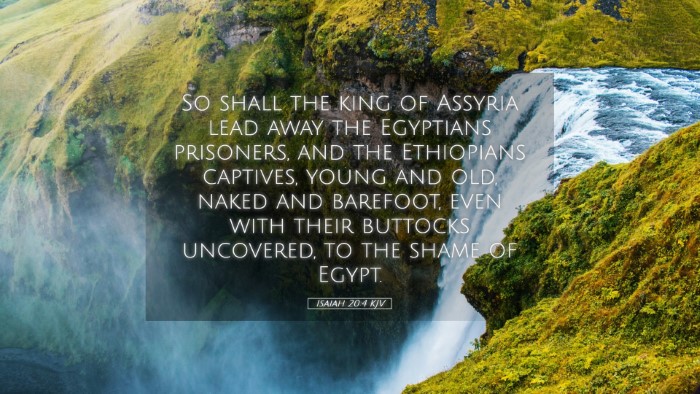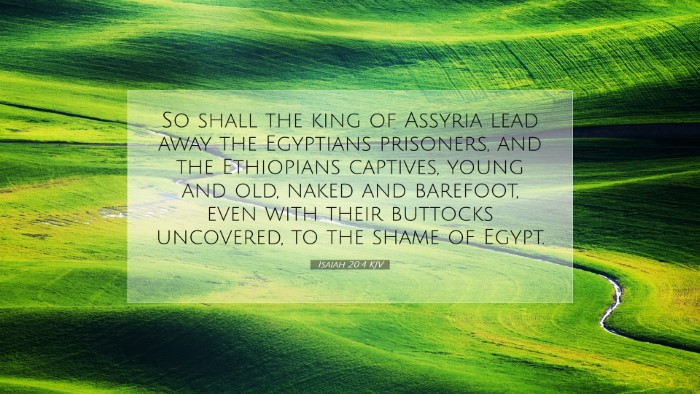Commentary on Isaiah 20:4
Isaiah 20:4 states:
"So shall the king of Assyria lead away the captives of Egypt and the exiles of Cush, young and old, naked and barefoot, with their buttocks uncovered, to the shame of Egypt." (ESV)
Introduction
This verse, which might initially seem to be merely a historical account, encapsulates profound themes of divine judgment, humiliation, and the sovereignty of God over nations. The significance of this text offers much for pastors, students, theologians, and Bible scholars as they explore the interplay between prophecy and its fulfillment in history.
Contextual Background
To fully grasp the meaning of Isaiah 20:4, it is essential to understand the historical and prophetic context. Isaiah delivered messages during a tumultuous period in which the kingdoms of Israel and Judah faced threats from powerful nations like Assyria and Egypt.
Historical Setting
- Assyria's Dominance: Assyria was at the pinnacle of its power, exerting influence and control over neighboring regions, including Egypt and Cush (Ethiopia).
- Egypt's Role: Egypt was perceived as a refuge and ally to Israel, yet Isaiah prophesied their eventual downfall during the Assyrian invasion.
- Symbol of Captivity: The imagery of nakedness and humiliation symbolizes not just a physical defeat but a spiritual and societal degradation, reflecting God’s judgment.
Analysis of Key Themes
Divine Judgment
The notion of God using Assyria as an instrument of judgment against the Egyptians highlights His sovereignty. As Matthew Henry notes, “God rules the world, and the greatest powers are under His authority.” This serves as a reminder that human empires, no matter how powerful, are ultimately answerable to God.
Humiliation and Shame
The depiction of captives taken "naked and barefoot" reflects profound disgrace. According to Adam Clarke, this was not merely a physical vulnerability; it stood as a sign of divine disfavor and retribution against the pride of Egypt. This imagery serves to contrast the exaltation of nations that defy God versus the ultimate humiliation that follows.
Prophetic Fulfillment
Isaiah’s prophecy came to fruition when the Assyrian king Sennacherib invaded and defeated Egypt. Albert Barnes emphasizes that the fulfillment of this prophecy underscores the credibility of Isaiah's ministry and God's word. The historical event serves as tangible evidence of divine prophecy manifesting in reality.
Theological Implications
The Sovereignty of God
Isaiah 20:4 encourages readers to reflect on the sovereignty of God over all nations. In the complexities of geopolitics and national pride, this verse brings to light the reality that human leaders may plan, but it is ultimately God who directs their paths.
Spiritual Application
For contemporary believers, this passage prompts introspection regarding reliance on human strength versus dependence on God. As noted by Henry, “those who trust in man will find themselves naked and ashamed.” A faithful remnant is encouraged to trust in divine protection rather than the might of worldly powers, echoing themes found in Psalm 20:7.
Conclusion
Isaiah 20:4 serves not only as an historical foretelling but also as a timeless reminder of the consequence of defying God’s authority. The insights drawn from public domain commentaries reveal depth in understanding how the ancient warnings continue to resonate in modern contexts. Pastors and theologians are reminded to communicate the weight of this text, urging congregants to seek divine wisdom and lean upon God's sovereignty rather than the shifting sands of earthly power.


